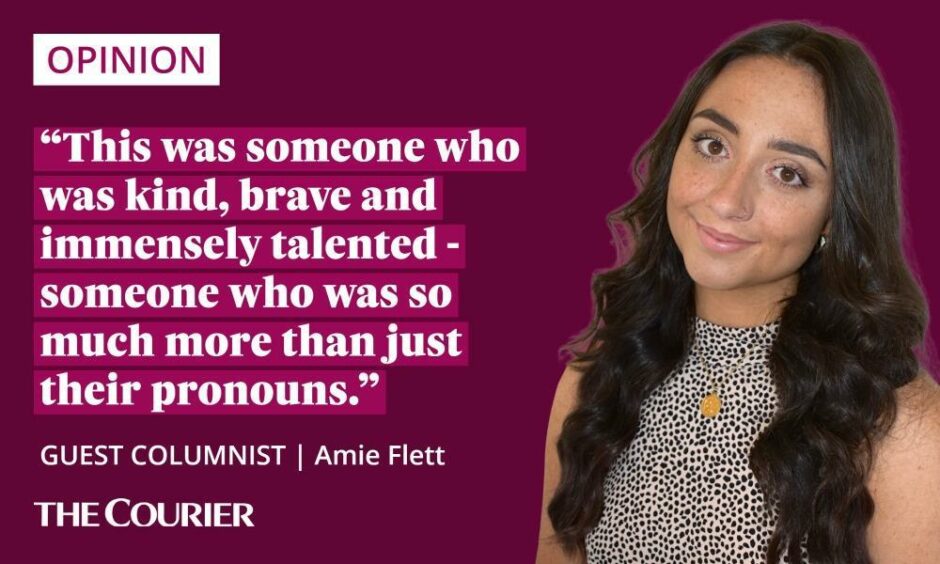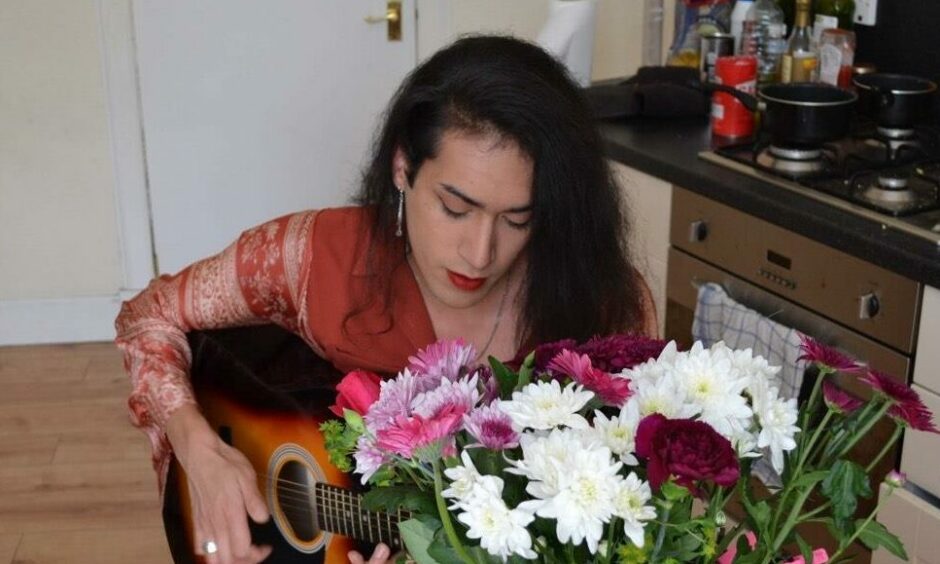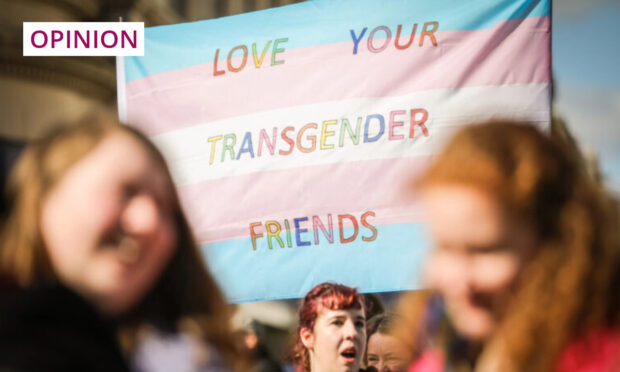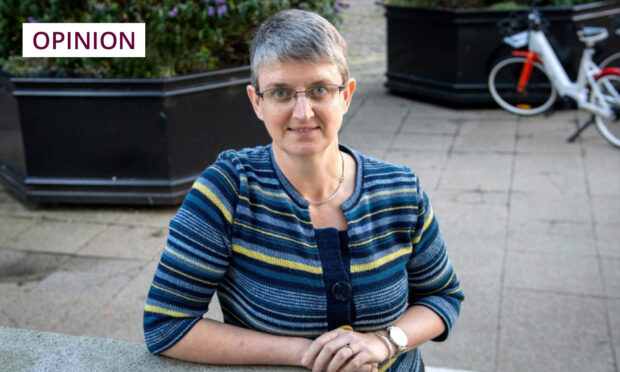Dundee lost a talented and much-loved member of the community last month.
Lexi Campbell was a 25-year-old music student at Perth College who took their own life on March 27.
I say “they” because Lexi identified as a transgender non-binary person, who went by the pronouns they/them/she/her.
The terms ‘transgender’ and ‘non-binary’ can mean many different things to different people.
In the simplest terms transgender often refers to people who have a different gender identity or gender expression from the sex they were assigned at birth.

And non-binary is often used as an umbrella term that represents people who neither identity as male or female, or who feel they identify with both.
If a person’s pronouns are they/them/she/her or they/them/he/him it can mean they identify as both.
But that’s only a tiny part of who Lexi Campbell was.
After Lexi died I spoke to their sister, Shona, who is 22 – the same age as me – for a tribute in The Courier.
When you write tributes for people who have been cherished, you sometimes start to feel like you knew them.
That’s how it felt to be learning about Lexi.
The words “brave” and “beautiful” and “eclectic” came up a lot.
But there was more to Lexi’s story that I felt needed to be shared.
Dundee offered Lexi a place to call home
What stuck out most was the love and support that Lexi had around them.
Shona spoke about how Lexi grew and thrived after moving to Dundee just eight years ago.
It was during that time they transitioned to trans non-binary.
She described the difference she saw in Lexi in the years they called Dundee home.
Shona told me: “I remember the kind of shy – maybe a little chubby – kid who went up to Dundee and then the beautiful human being that I remember from the last time I saw them.
“They were just so brave.”
Lexi was also a budding member of the music scene in Dundee, playing in many different bands and performing on stage most weeks.
It was heart-warming to learn that Lexi felt so “at home” in Dundee.
That they felt free to be themselves unapologetically.
That the people around them made them feel comfortable.
And it’s heartbreaking to realise that for Lexi that wasn’t enough.
Mental health is a struggle for many queer people
Lexi’s sister said her family would have done “anything in the world for Lex”, but there were things their family and friends couldn’t help with.
Things that only trained professionals could have supported them with.
And that support just wasn’t available when Lexi needed it.
Mental health care in general is severely underfunded in the UK.
And when you add being queer into the mental health mix it’s a minefield.
Problems such as depression, self-harm, alcohol and drug abuse and suicidal thoughts are reported to be more common among LGBTQ people but one in seven say they have avoided mental health treatment for fear of discrimination.
A recent Stonewall study found almost half of young trans people had attempted to take their own lives.
Being queer doesn’t cause these problems. But issues, such as discrimination, homophobia or transphobia, social isolation, rejection, and difficult experiences of coming out, can all take their toll.
I could never begin to imagine the thoughts that were going through Lexi’s mind when they took their own life.
That’s the reality of mental illness, I suppose.
But what I learned from my discussions with those closest to Lexi, is that sometimes it isn’t enough for your family, friends and even city to accept you as who you are.
It’s much wider than that.
When policies become personal
Just days after Lexi took their own life, Boris Johnson announced the UK Government was excluding transgender people in its ban on gay conversion therapy.
“It is still difficult to see how I am worthy of love.” https://t.co/YbmuyG2et0
LGBTQ+ people who are subjected to conversion therapy often suffer lasting damage to their mental wellbeing. #BanConversionTherapy
Write to your MP now for an inclusive ban: https://t.co/a9Vw7IhAyt
— Stonewall (@stonewalluk) April 16, 2022
Conversion therapy sets out to change someone’s sexuality or gender identity.
And it works on an assumption that being gay, lesbian, bisexual or transgender is a “curable” mental illness.
Political decisions have a way of trickling down into the individual lives of the people they affect.
And what could possibly make a person feel more unwelcome than being told they need therapy to change who they are?
I often think if people stopped picturing those who identify as transgender or non-binary as collective groups and instead saw them as individuals, they might make better, kinder, decisions.
Take Lexi as an example.
This was someone who was kind, brave and immensely talented – someone who was so much more than just their pronouns.
It’s not for governments, or the rest of us, to use laws or words to define who they are.
Lexi was let down by society and now the people who cherished them dearly have to suffer with their loss.
I can only hope Lexi’s story will act as a symbol of hope, and that their legacy continues to inspire those in Dundee and beyond to be strong. To be who they are.
And I’ll leave the last word to Shona, who knew more than any of us how special they were: “Everyone should be a little more like Lex.”















